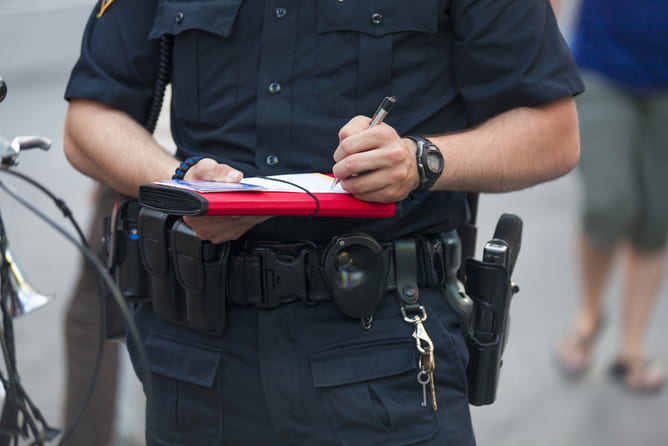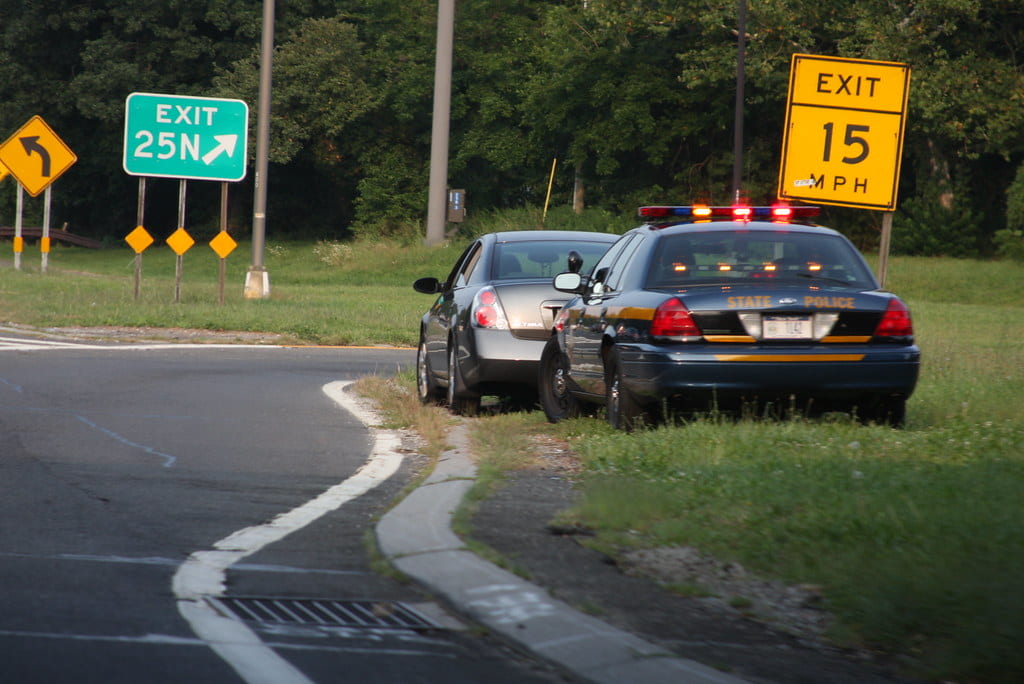
There are three main components of the United States criminal justice system: law enforcement, courts, and corrections. The ways in which the justice system disadvantages poor people is evident in both the courts component, with our cash bail system, and the corrections component, with private prisons and free inmate labor. However, the law enforcement component plays a part in the economics of the justice system. The Institute for Justice in Arlington, Virginia describes policing for profit as the ways in which “state laws are written to encourage police agents to pursue profit instead of seeking the neutral administration of justice.” Police officers are allowed to commit asset forfeiture abuse, seizing (and ultimately keeping or selling) and property they allege is involved in a crime. Officers are also incentivized to increase fine revenue through traffic stops and other traffic ticket opportunities. The relationship between law enforcement, the courts, and municipalities is a codependent one. Often times, cities and towns rely on fines and fees to address shortfalls in their budgets. And much like many other processes in the criminal justice system, this one disproportionately affects people of color and punishes low-income people.
Small Towns and Excessive Fines
A report shows that small cities and towns across the country use fines to finance their governments. As economic development in small towns and rural communities continues to decline, fines are accounting for a considerable percentage of revenue. Common boosts in revenue come from traffic cameras, speeding traps, and parking tickets. Fines and Fees Justice Center co-director, Lisa Foster says this use of the judicial system as a means of income stems from “the inextricable ties between the police, the town and the court.”
An analysis by Governing, the largest to date, shows that fines account for more than 10 percent, and in some jurisdictions 20 percent, of funds in small governments across the U.S. Although, these cases are found throughout the country, they are concentrated in poorer areas. Regions of the country like the South have impoverished rural areas and a large number of independent municipal local courts. So, states like Georgia, Louisiana, and Texas have a sparse tax base in certain areas, but fines account for a high percentage of their revenues. Whereas revenue from fines in wealthier Northeastern states don’t exceed 10 percent.

Both fines and fees have increased over the years. The rise in fees is concerning though. Some states limit the amount that local governments can profit off of traffic tickets. States like North Carolina use money from fines to support public schools. Fees, imposed to offset operational expenses, on the other hand are less restricted. Fees for monthly parole meetings and drug tests are established locally and the money obtained if often used for aspects of the government other than the judicial system. Fees in Georgia are used to for a medical trust fund and an additional retirement fund for police officers.
Nonetheless, income from fines and fees is allocated in city budgets. Although Georgetown, LA has fewer than 500 residents, this 2019 financial statement showed fines made up nearly 92 percent of the village’s revenue. Ultimately, the dependence on fines and fees has become so routine, that as the president of the Public Affairs Research Council of Louisiana, Robert Scott says, “they [local agencies] don’t want to let it go.” There is no doubt that the dependency will continue. As the worsening global pandemic has caused a budget crisis, municipalities will look to fill budget gaps with fines and fees.
